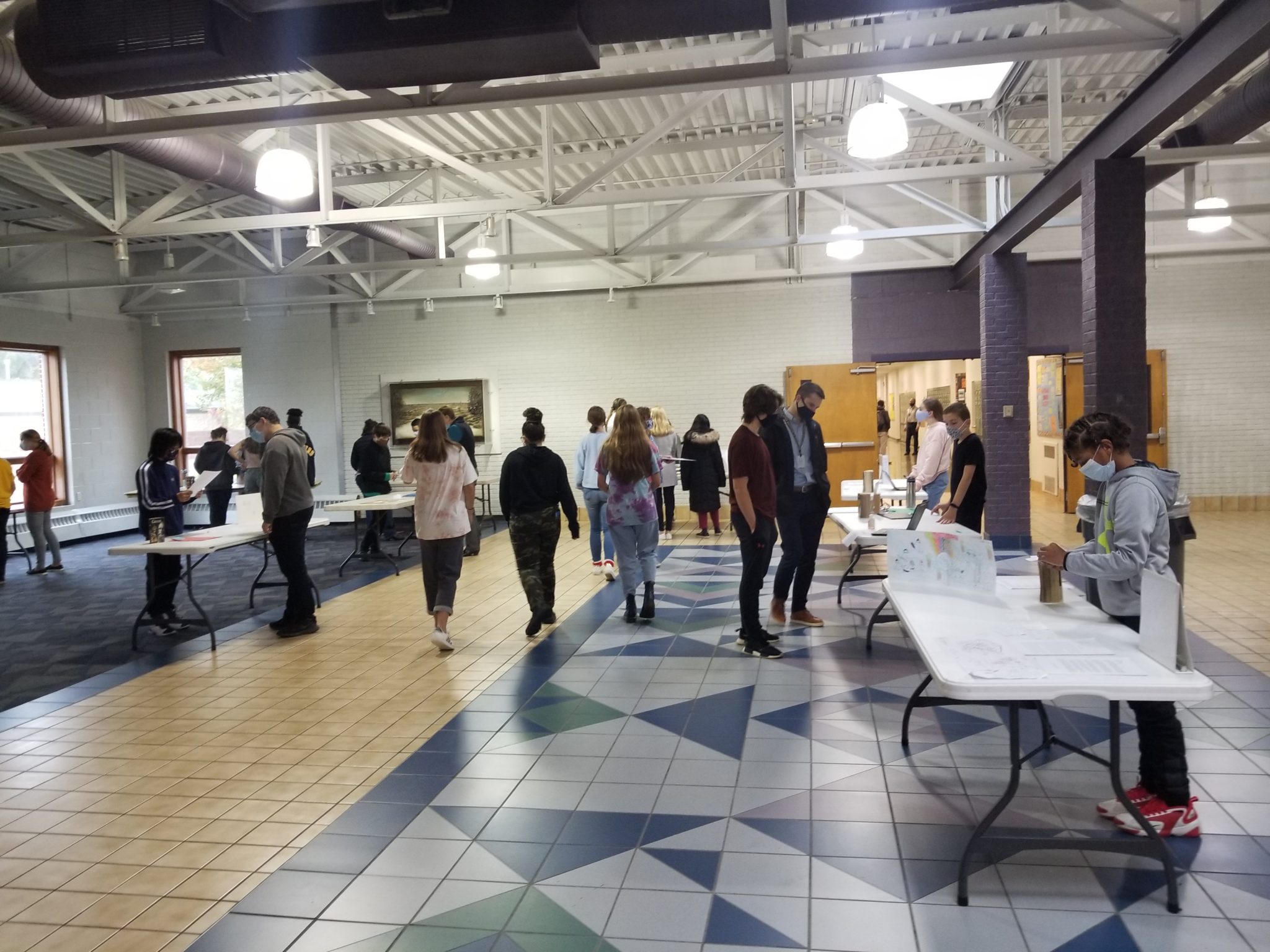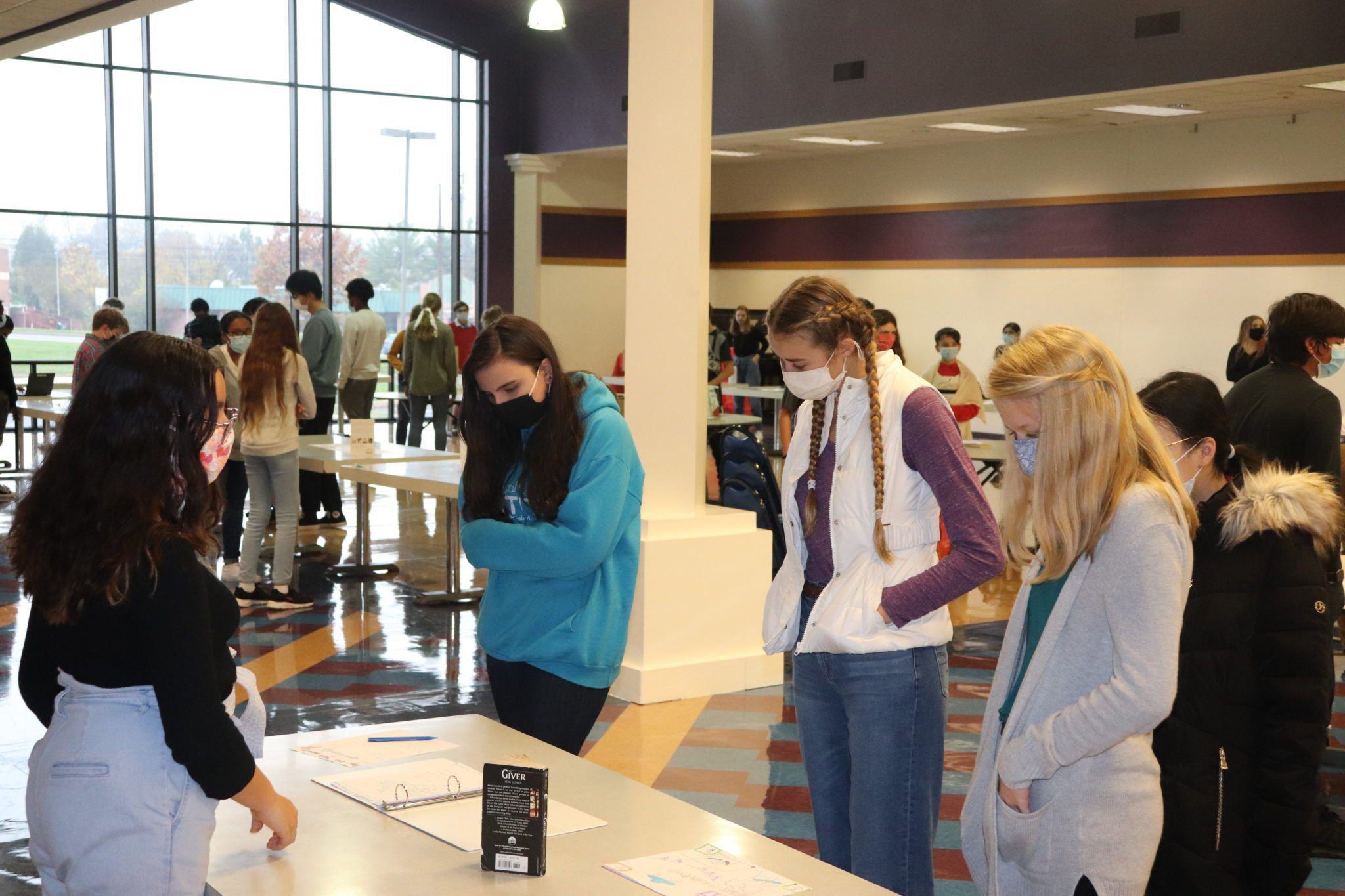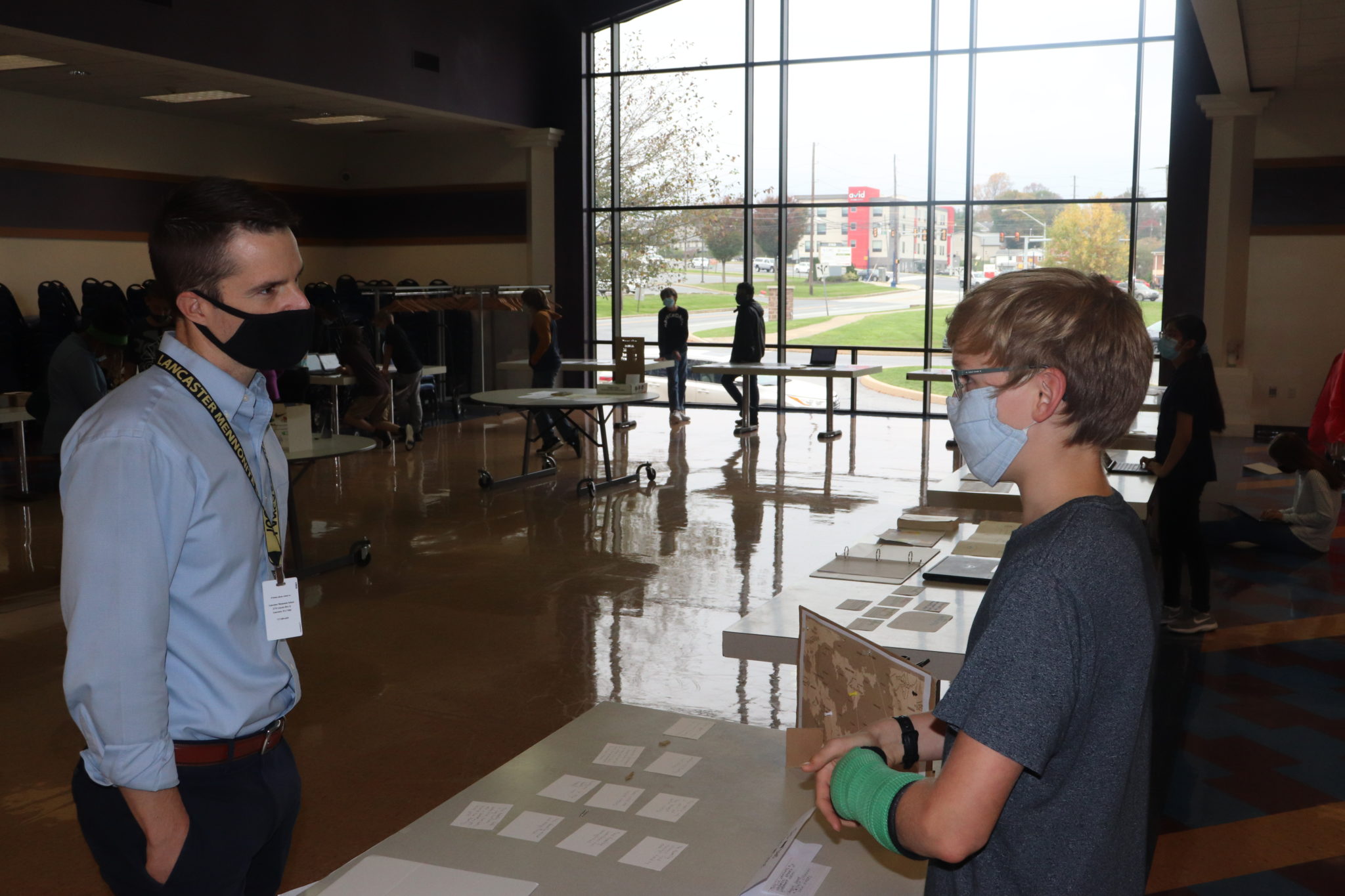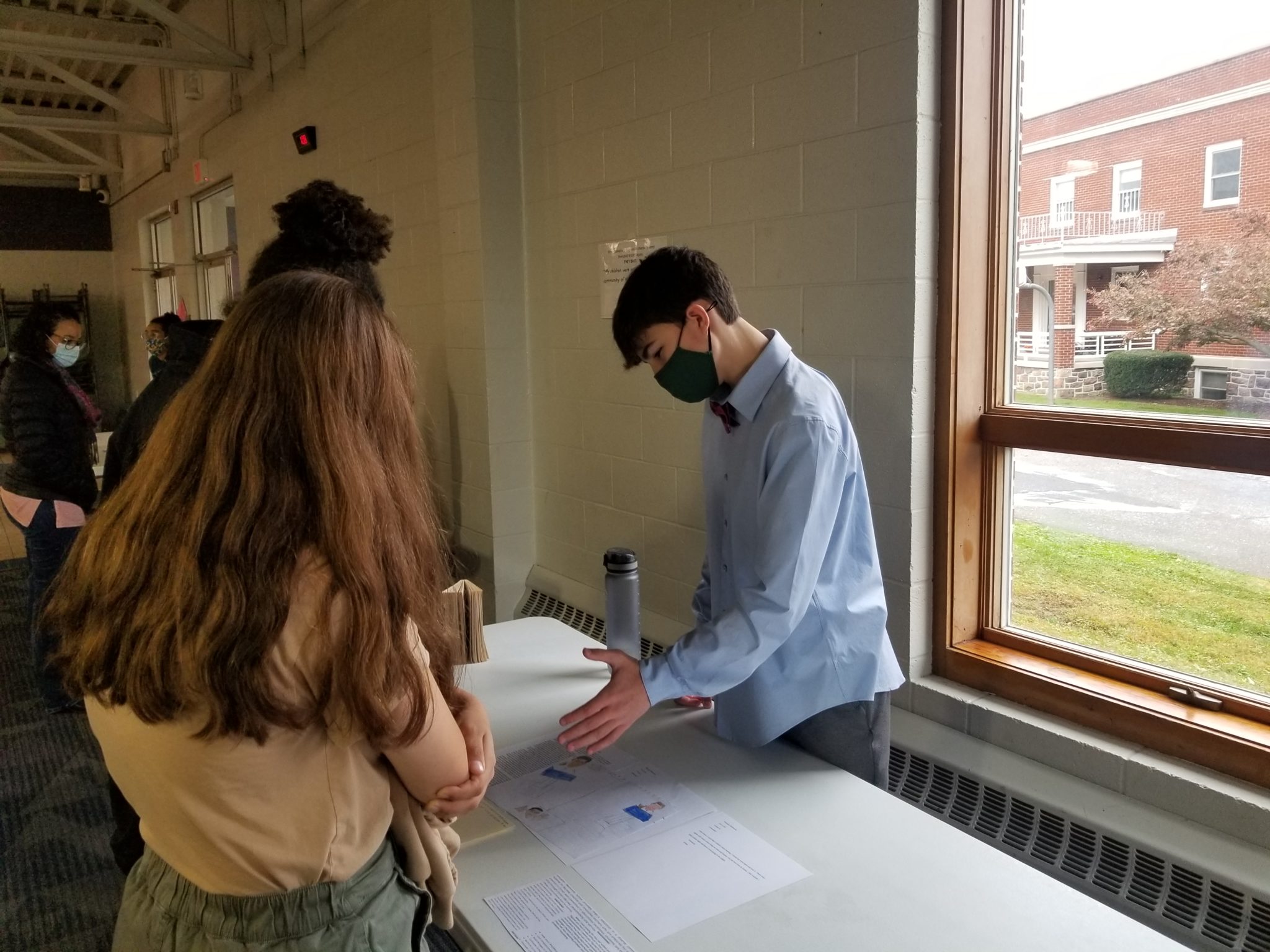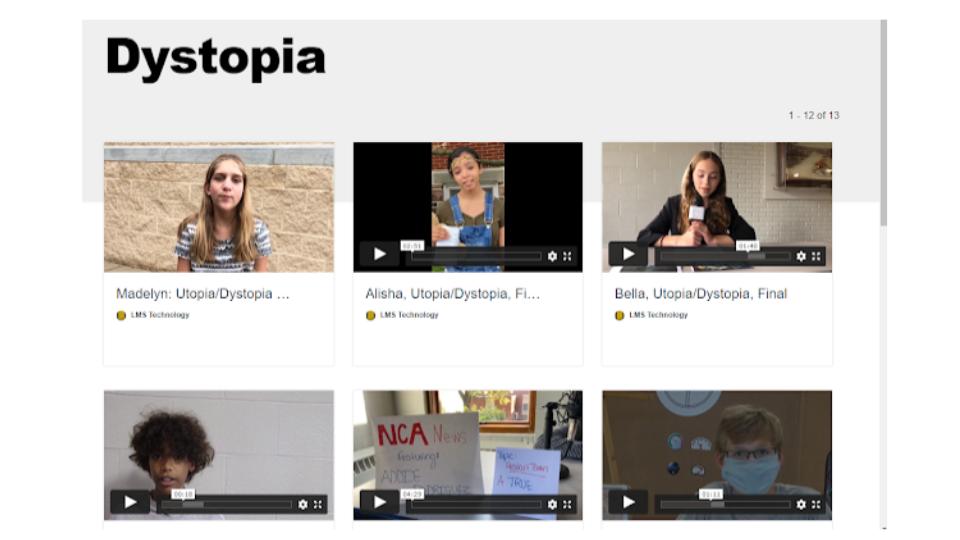Posted
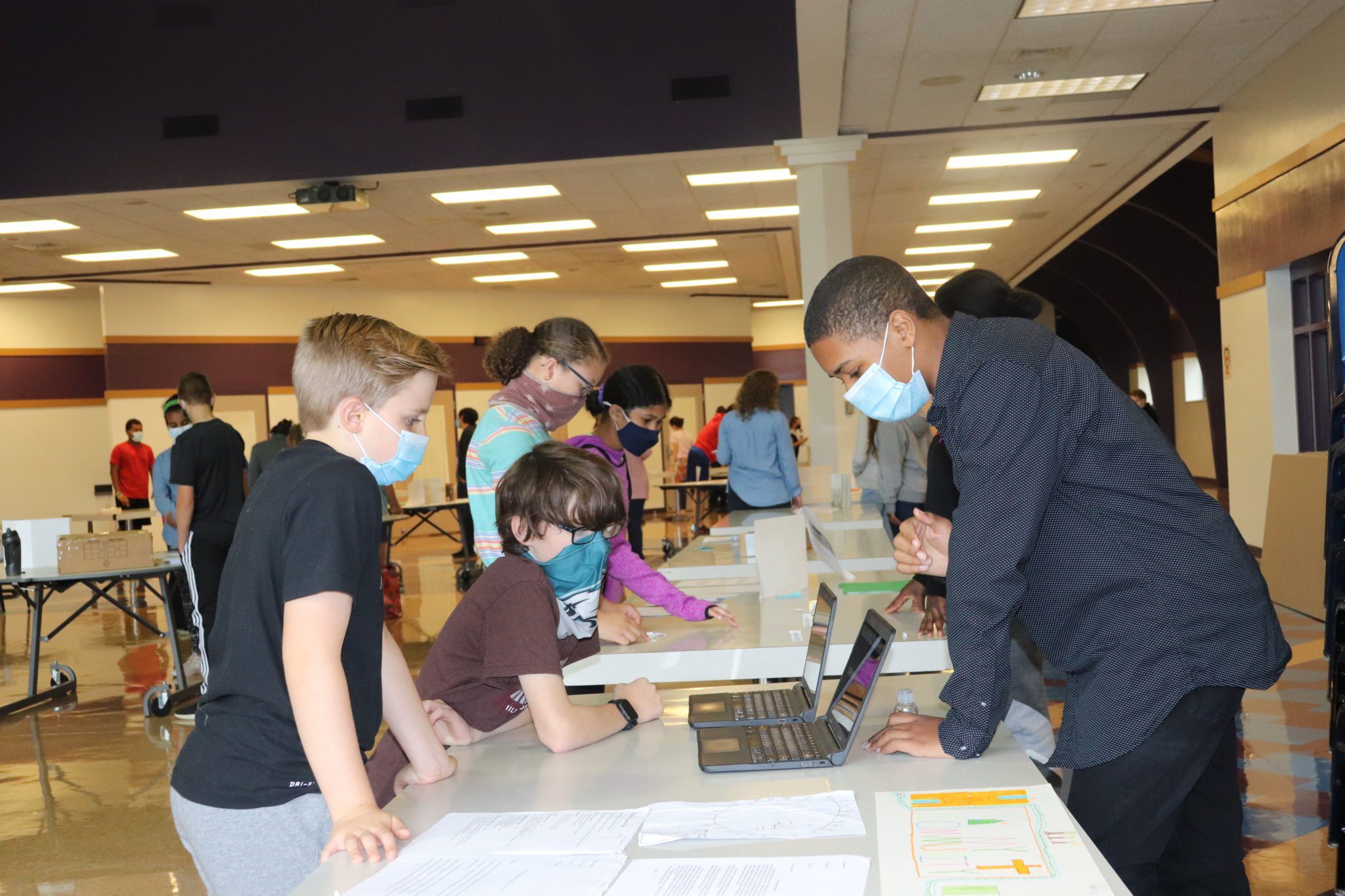
Last week middle school students in our Project-Based Learning track hosted their first Virtual Exhibition Night to wrap up the first quarter, with the focus on Civilizations.
Students worked hard to create and edit a video showing their understanding of civilization from one of three perspectives: Government, Faith and Community, or Dystopian Literature. They also interviewed their parents after the exhibition as a response to their work.
Madelyn Stoltzfus ‘25, shared a creative ‘news broadcast’ where she interviewed herself about her magical Utopia, The City of Fun, inspired by Dystopian Literature. Her created world was a kid and teen focused society made up of islands, hoverboard transportation, milestone celebrations and activity islands like Arts and Crafts, music and nature.
Eros Cedono ‘25 created a news brief featuring himself as US congressman Scott Perry, serving in the PA 10th District. He compared and discussed the US constitutional amendments and how they are and could be practiced.
Taking the perspective of someone related to their research, students individually shared their understanding of their topic with high school students.
Students also shared and reflected on their videos and the quarter’s major assignments with their families.
| Civilizations Theme:
What marks the formation of a civilization? Is it simply a large number of people living in proximity to one another, or is it more? Art, literature, music, and religion express and define a culture, as does the set of values and ethics that promote a diverse society and the wellbeing of its members. These define a shared way of life and exhibit the characteristics of a civilization’s unique identity. For our theme, students explored how civilizations are governed, the structure of a society through dystopian literature, and how communities and neighbors are shaped by faith. Faith and Community This quarter, we dove into the scripture of Luke 10:25-37. We analyzed the story of the Merciful Samaritan, trying to discover Jesus’ definition of neighbor and the characteristics of neighbor. We also learned about how a community functions and how neighbors connect in our school community. In addition, we talked about mercy and organizations that show mercy to our communities. In conclusion, these things helped us produce our projects and showed us the importance of being a good neighbor to our communities. Dystopian Literature In ELA, we learned a lot about dystopia and utopia and how they connect to civilizations. We learned about all the different aspects of each. How a utopia is a perfect society, where everyone is happy and gets along, and a dystopian society is sort of a society that often can seem to be utopian, but really is normally completely controlled by the government and everything is far from perfect. We also had the opportunity to read a book about a dystopian society, for example, The Giver, Legend, The Hunger Games, and so many more. While reading we looked at different characters, the government, and we compared the societies with aspects of a utopian society. Government At the beginning of the quarter, most of us knew a little about our US government. We started learning about different government systems used throughout the world, like Democracy, Monarchy, Autocracy, and Anarchy. We then went deeper and created our own government with the aspects of what we liked from each government. Our main focus was then on the US presidential election and how polling and the electoral college works. We also had to watch and analyze the debate. We also learned how the economy of the United States changed over time and during the pandemic. We also learned about communism, socialism, and capitalism and how they are similar and different. Playing an interactive stock market game, tied to the New York Stock Exchange, we learned how stocks impact our capitalistic economy and help the civilization prosper. Up Next: The next quarter theme is ‘To Infinity and Beyond’ where students will explore the concept of humans living on Mars and will create a virtual colony. They began the quarter by launching student-created rockets and asking questions about what they would need to know to create a Mars colony. |
